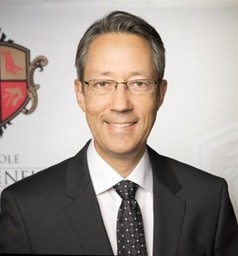ASTM B117 vs AASS or CASS
Our customers often wonder if a “regular” (neutral) ASTM B117 salt spray test is the best test method for their product(s) or if they should opt for an acidic environment (AASS or CASS). What can make this decision difficult is that their customers regularly request that a very specific test be done, such as ASTM B117. This is weighed against the desire to inquire about and choose the test or tests that will most accurately and appropriately predict how a product will behave in the field. If you must perform or utilize an exact or specific test or method at the request of your customer, then that is, indeed, what you must do, and Micom offers an array of salt spray tests that will certainly meet this need. However, if you are interested in discovering the most about your product and which tests would be best suited for it, please read on for some helpful information.
The choice of test(s) for your product(s) should be based on the type of material/coating you are using. Indeed, Acetic Acid Salt Spray and Copper-Accelerated Salt Spray (also known as AASS and CASS respectively), are mostly used for electrodeposited copper/nickel/chromium coatings, nickel/chromium coatings, and sometimes anodic coatings on aluminum.
Conversely, ASTM B117, offering neutral Salt Spray conditions with a pH ranging between pH 6.5 to 7.2, applies for metals and their alloys, most metallic coatings, anodic oxide coatings, organic coatings, and metallic materials.
This is why ISO 9227 NSS and ASTM B117 are still the most used and renowned accelerated corrosion test methods.
However, as discussed in a previous post, there are currently more evolved test methods such as ASTM G85 and ASTM D5894. ASTM G85, often referred to as cyclic corrosion, offers five different test cycles. On the other hand, ASTM D5894 alternates between one week of salt spray testing and one week of ASTM G154 exposure for a given number of cycles. This test method is believed to better simulate outdoor exposure by synergistically combining these two organic coating aging mechanisms.
For more information about these new services and all of our coating testing services, please contact us.
Micom is a third material testing laboratory accredited by A2LA, and ISTA.
Disclaimer
All of the information and opinions contained in this blog are made with the information, and the understanding that we have reviewed at the time of publishing. However, despite our efforts, we do not offer any guarantee of their accuracy, thoroughness of our investigation or validity. The author of this blog is not liable for any inaccuracies or any losses or damages that may result from the use of the information or data contained herein. This blog has not been reviewed or verified for its accuracy by any peer group associates prior to publication.


